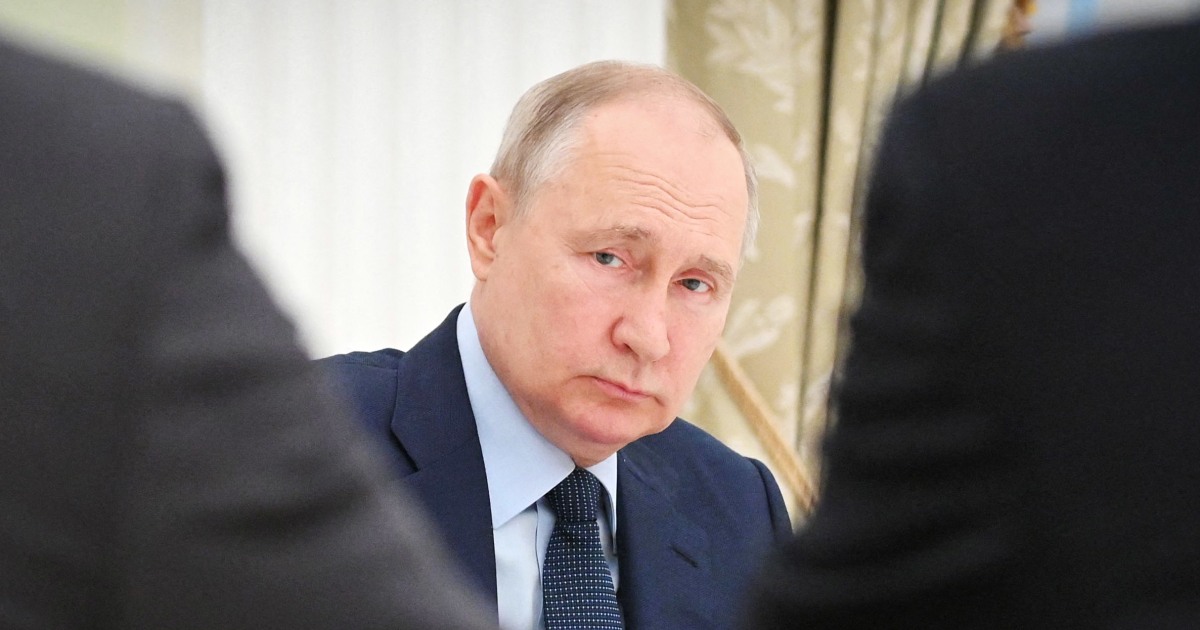Putin Opts for Remote Participation in G20 Summit in India Amidst Ukraine Crisis

Putin Opts for Remote Participation in G20 Summit in India Amidst Ukraine Crisis
*In a move that has caught global attention, Russian President Vladimir Putin has decided not to attend the upcoming G20 summit in-person, which is set to take place in New Delhi next month. The Kremlin’s announcement on Friday revealed that Putin’s absence is attributed to his “busy schedule” and an unwavering focus on the ongoing “special military operation” in Ukraine.*
The G20, or Group of Twenty, stands as a significant assembly of the world’s major economies, fostering discussions on international financial stability and broader global issues. The forthcoming G20 leaders’ summit, slated for September 9 and 10 in the vibrant city of New Delhi, has garnered heightened attention due to the notable decision of Putin’s non-attendance.
The Kremlin’s proclamation provided insight into Putin’s prioritization of the ongoing situation in Ukraine, emphasizing the intensity of the “special military operation” underway. This strategic choice for remote participation underscores the gravity of the geopolitical predicament in Eastern Europe and is perceived as a signal of Putin’s commitment to managing the situation from Moscow.

As the announcement reverberates across international spheres, the absence of President Putin at the in-person summit has prompted speculation and discussions concerning the implications for the G20 agenda and the broader global diplomatic landscape. With leaders such as US President Joe Biden and Australian Prime Minister Anthony Albanese confirming their physical presence, Putin’s virtual attendance introduces a unique dimension to the proceedings.
The decision has evoked varied responses from different quarters. Some view it as a pragmatic step that enables Putin to stay closely engaged with the developments in Ukraine, while simultaneously participating in the G20 deliberations. This perspective highlights the interconnectedness of geopolitical crises and economic discussions, advocating for a comprehensive approach to global leadership.
On the other hand, critics argue that Putin’s virtual attendance might signal a lack of willingness to engage directly with other leaders, particularly those who have expressed concerns over Russia’s involvement in the Ukrainian conflict. The absence of face-to-face interactions could potentially hinder open dialogue and compromise, necessary for finding peaceful solutions to multifaceted challenges.

The absence of a head of state at a high-profile international event is not without precedent. However, in the context of a crisis as significant as the one unraveling in Ukraine, Putin’s decision is laden with symbolic and diplomatic weight. It raises questions about the efficacy of virtual diplomacy and the extent to which remote participation can replicate the nuanced discussions and personal connections that often arise during physical summits.
The G20 summit, traditionally an arena for economic discussions, is now poised to accommodate deliberations on security, international law, and diplomatic strategies. The absence of a major player like Putin can influence the dynamics of these conversations. It places greater responsibility on the shoulders of other leaders to address the situation in Ukraine, both within the context of the G20 discussions and through separate diplomatic channels.
Furthermore, the situation shines a spotlight on India, the host nation of this year’s G20 summit. India’s role becomes crucial not only in steering the economic agenda but also in managing the dynamics resulting from Putin’s remote participation. The nation must balance the imperative of addressing pressing global issues with the nuances of diplomatic protocol and the sensitivities of the ongoing crisis.
The power dynamics within the G20 gathering could also experience subtle shifts due to Putin’s absence. The focus might temporarily shift away from Russia and its perspective on global matters, allowing other nations and their leaders to take center stage in shaping the discourse. This recalibration could pave the way for renewed alliances, collaborations, and strategic alignments among the remaining G20 participants.
As the diplomatic world watches with anticipation, the efficacy of virtual diplomacy is put to the test. Can digital platforms truly replace face-to-face meetings when it comes to negotiating complex international issues? The world has become increasingly reliant on virtual communication due to the global pandemic, but the unique challenges posed by conflicts of this magnitude reveal the limitations of remote engagement.
The G20 summit’s organizers will need to adeptly navigate Putin’s virtual participation to ensure that his perspective is adequately represented and that his absence does not inadvertently sideline Russia’s stance on crucial matters. Simultaneously, they must facilitate an environment conducive to robust discussions among the other leaders, encouraging open dialogue and the exchange of ideas.
In conclusion, the decision of Russian President Vladimir Putin to participate remotely in the upcoming G20 summit in India has ignited multifaceted discussions. The ongoing crisis in Ukraine and its geopolitical implications, the dynamics of global diplomacy, the role of the host nation India, and the effectiveness of virtual engagement are all aspects that intersect within this narrative. As world leaders prepare to gather in New Delhi, the absence of one leader casts a significant shadow, prompting adaptation, innovation, and reflection on the evolving nature of international relations.





